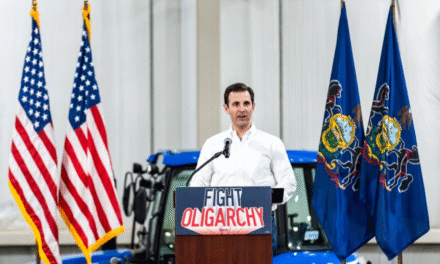Even with the overturning of Roe v. Wade, Pennsylvania allows abortions up to 24 weeks.
Even before the end of Roe v. Wade, abortion was a cultural and political flashpoint that some voters rallied around while politicians either made a persona out of championing or committed campaign-ending gaffes over. Since Roe was overturned in 2022 and the issue of abortion left for each state to decide, pro-choice advocates have been successful in pursuing the protection of abortion as a right in several state constitutions in states like Kansas, Montana, and Ohio.
In Pennsylvania, it is currently legal to obtain an abortion through the 23rd week of a pregnancy. According to resources provided by the Democratic caucus in the Pennsylvania statehouse, state and federal “Medical Assistance” (also known as Medicaid) funds are prohibited from use for most instances of abortions, but can be used in the case of rape or to protect the life of the mother. Health insurance plans for public employees also don’t cover abortion, with the same exceptions as Medicaid.
Recently, a group of abortion providers have gone to state court to challenge the state ban on the use of Medicaid funding for abortions. Governor Shapiro’s administration agreed with this challenge in a brief filed with the court, saying the administration will not defend the current law banning Medicaid from paying for abortion. A decision on the case has not yet been decided.
There are other stipulations to Pennsylvania’s access to abortion. According to SpotlightPA, counseling is required before an abortion procedure is completed, as well as a 24-hour waiting period. Additionally, minors must have the consent of a parent or guardian before getting an abortion. In some cases, a judge can bypass the required consent.
Since the overturning of Roe, the number of abortions in the state have risen, up 17% since 2020, two years before the Dobbs case ended the federal right to abortion. According to reports, out-of-state residents were a significant amount of that increase as neighboring states enacted abortion restrictions nearly immediately after Roe was overturned.
Polling indicates abortion is a top 5 issue for Pennsylvania voters, behind the economy, immigration, the Second Amendment, and “democracy.” 49% of those polled say it will influence who they vote for in the 2024 presidential election. More recent polling suggests most Keystone State voters would prefer federal protections rather than state-by-state.
In this year’s Senate race, incumbent Democrat Bob Casey, who once described himself as a “pro-life Democrat” now believes abortion should be protected at the federal level and has voted to do so. His Republican challenger Dave McCormick celebrated the overturning of Roe in 2022 but has since argued that it should be left up to the voters of each state.
The candidates for state Attorney General, who would be responsible for enforcing any abortion-related law in the state, have different stances on abortion, though not necessarily a result from the issue itself. Democrat Eugene DePasquale has made abortion access a central theme of his campaign, pledging to “never prosecute a person who seeks an abortion or a doctor who performs one.” His Republican opponent, York County District Attorney Dave Sunday has kept his response to questions over his position on abortion minimal: saying he would uphold whatever the law of Pennsylvania was, that the issue is up to the state legislature and that “refus[ing] to enforce a law based on their own personal feelings” is “usurping the will of 13 million Pennsylvanians.”






